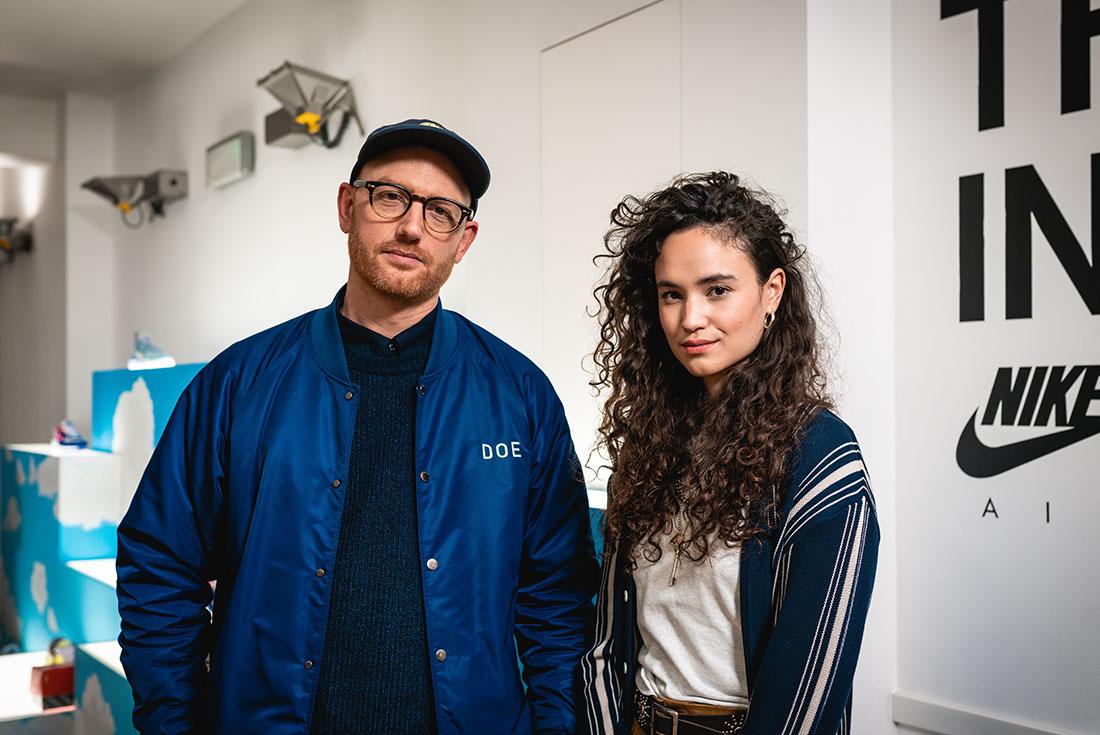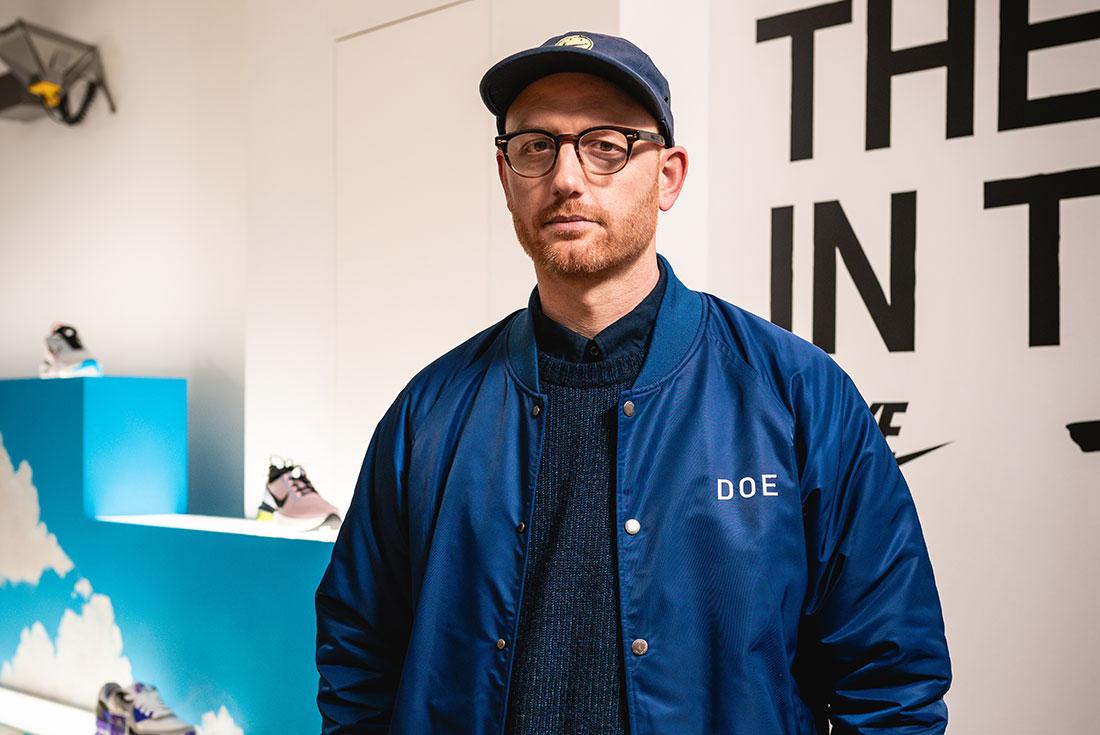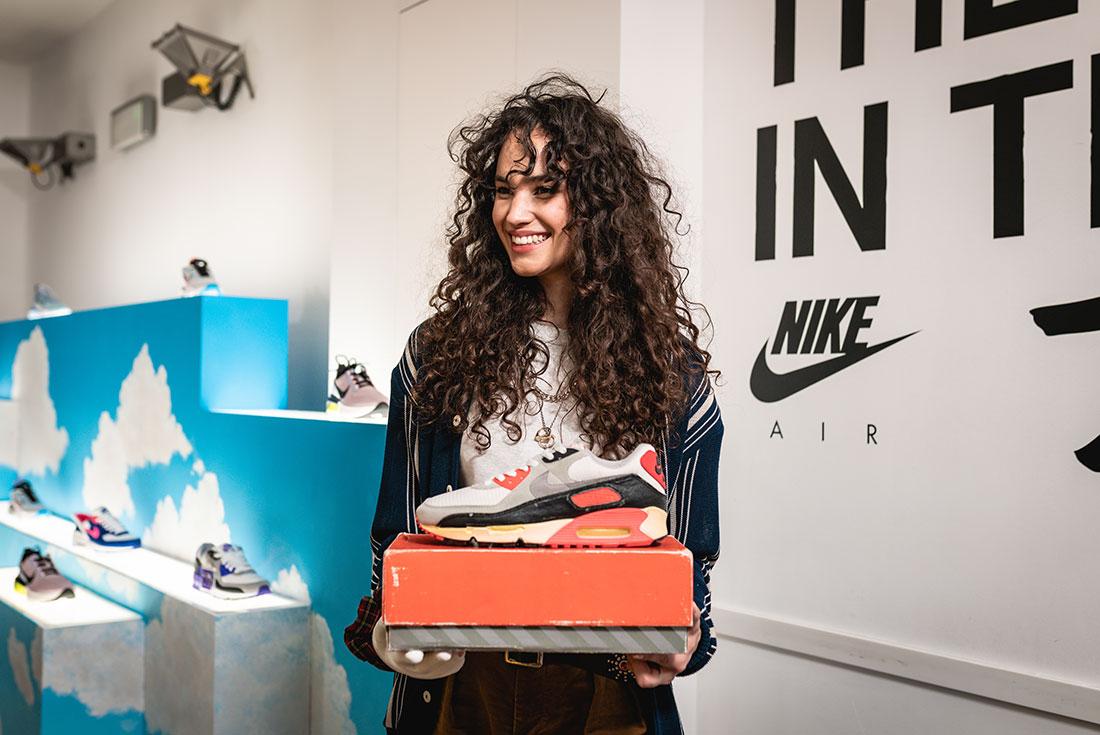Exclusive: The Future of Nike Air Max with Designers Juliana Sagat and Dylan Raasch
The celebrations surrounding the 30th anniversary of the are no doubt at the core of 2020 vision. Nodding to the past and championing the future, the launch of four unique have kicked festivities with a bona fide bang. Featuring the all-new Air Max 2090, Air Max 90 FlyEase, Air Max Verona, and an electrifying take on 2020’s AM90, the contemporary capsule reinterprets classic elements of the silhouette for a new generation of sneaker fiends – in particular, the women that will shape the future of Air.
Following a recent showcase event in London, we caught up with two of the Air-ficionados behind the design – Dylan Raasch and Juliana Sagat – for an in-depth glance Air Max’s latest chapter.
As Nike’s senior creative director, Raasch has already been a key figure in for the brand. However, the addition of Sagat, previously of French fashion house Isabel Marant, has no doubt breathed fresh Air into the Team Swoosh design ranks.

Is it true that the toe box was the way it was because of the manufacturing techniques 30 years ago?
DR: Yeah, it’s weird because to get that shape, it has to be toe lasted, which is actually less efficient, and harder to do. And then when you mould the rubber down, it allows the mould to be cheaper. So we actually did all these things to make it better, but then you go back and you’re like, ‘Well, that’s not really what it looked like’.
That’s a really weird trade off. But you want to stay authentic to what it was originally, because if you start losing that, you will disappear. But I think that shape is becoming a thing. So you can’t take it away. We’ve done this before and we didn’t do it right. And you find out real quick that people are unhappy.

What did you take for the 2090?
DR: We always like planning an Air Max around what the future’s going to be. So the 2090 was a little bit of a brainstorm with the team. It’s going like, ‘Hey, if we like flat out about 100 years, what would that be?’ Obviously when we were doing that in the exploration phase, it was much more out there than what it ended up being, for technological and price-point reasons. But I think when we brought it back, it had to be something that was digestible and affordable.
I think it got us in a nice spot to see how design evolves over time. We’re seeing that things also simplify and streamline as you start taking away these things that were actually not necessary in the beginning. So it was a cool exercise because I think it informed us on how we could look forward even farther. And I think we’ll be seeing some other models coming out in the near future that went more in that direction.


